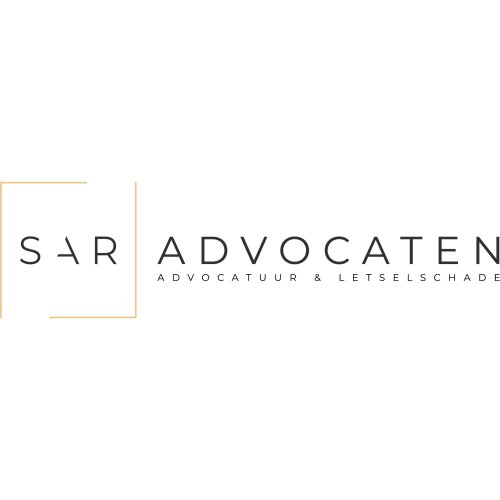Best Hiring & Firing Lawyers in Netherlands
Share your needs with us, get contacted by law firms.
Free. Takes 2 min.
Or refine your search by selecting a city:
List of the best lawyers in Netherlands
About Hiring & Firing Law in Netherlands
The hiring and firing process in the Netherlands is highly regulated to ensure fairness and protection for employees. Typically characterized by a high degree of job security, Dutch labor law mandates clear procedures and valid reasons for termination, as well as for hiring protocols. Employers must adhere to strict guidelines and may require court or governmental approval for dismissals, making understanding these laws critical for both employers and employees.
Why You May Need a Lawyer
In the Netherlands, you may require legal assistance in the field of hiring and firing for several reasons. If you're an employer, you might need help navigating complex local regulations, drafting contracts, or dealing with disputes or redundancy issues. For employees, understanding your rights if you face unfair dismissal, discrimination, or contractual issues is crucial. A lawyer specialized in Dutch labor law can provide guidance, negotiate on your behalf, and help resolve conflicts to avoid costly litigation.
Local Laws Overview
The Dutch labor market is governed by both national laws and European Union directives, providing a robust framework for employment relations. Key aspects include:
- Employment Contracts: Contracts can be fixed-term or indefinite and must clearly outline terms and conditions.
- Dismissal Procedures: Dutch law requires a valid reason for termination, such as performance issues or economic reasons, with prior approval often needed.
- Notice Periods: The notice period for termination is typically one month, but can vary based on employment duration or contract stipulations.
- Trial Periods: These are allowed up to two months, providing a timeframe for assessing suitability of employment.
- Non-Compete Clauses: Applicable under certain conditions, these must be justified and reasonable in duration and scope.
- Severance Pay: Entitled based on length of service, known as transition compensation.
Frequently Asked Questions
What is a fair reason for dismissal?
Legitimate reasons include underperformance, misconduct, redundancy, or business closure. Approval from a Cantonal Court or the Employee Insurance Agency (UWV) is often required.
Are verbal contracts valid?
While verbal agreements can be binding, written contracts are strongly recommended for clarity and legal security.
What should I do if I face unfair dismissal?
Seek immediate legal advice, as there are specific time limits to challenge a dismissal in court or before the UWV.
How long can a probation period last?
Probation can last up to two months, depending on the type and duration of the contract.
Can my employer change my job duties?
Significant changes require mutual agreement. Consult your contract and possibly seek legal advice if changes occur without consent.
Do temporary workers have different rights?
Temporary workers have similar rights but with certain distinctions, especially concerning termination and contract duration.
What are the rules around working hours?
Working hours should comply with the Working Hours Act, limiting weekly hours and mandating rest periods to ensure safety and health.
Is there protection against discrimination during hiring?
Yes, Dutch laws prohibit discrimination based on race, gender, age, disability, and other protected characteristics.
What is the role of the Works Council?
In companies with 50 or more employees, the Works Council plays a role in decision-making processes affecting employees, such as reorganizations or layoffs.
How is severance pay calculated?
Severance pay, or transition compensation, is calculated based on the employee's years of service and their salary.
Additional Resources
Consider consulting the following resources for information and support:
- The Dutch Ministry of Social Affairs and Employment
- Federation of Dutch Trade Unions (FNV)
- Confederation of Netherlands Industry and Employers (VNO-NCW)
- Employee Insurance Agency (UWV)
- Local Chambers of Commerce for employment practices
Next Steps
If you need legal assistance in hiring and firing in the Netherlands, consult a specialized labor lawyer who can provide tailored advice based on your situation. Start by gathering all relevant documents, details, and correspondence related to your employment dispute or query. Schedule consultations with a few legal experts to understand your options and decide how to proceed strategically and within legal time limits.
Lawzana helps you find the best lawyers and law firms in Netherlands through a curated and pre-screened list of qualified legal professionals. Our platform offers rankings and detailed profiles of attorneys and law firms, allowing you to compare based on practice areas, including Hiring & Firing, experience, and client feedback.
Each profile includes a description of the firm's areas of practice, client reviews, team members and partners, year of establishment, spoken languages, office locations, contact information, social media presence, and any published articles or resources. Most firms on our platform speak English and are experienced in both local and international legal matters.
Get a quote from top-rated law firms in Netherlands — quickly, securely, and without unnecessary hassle.
Disclaimer:
The information provided on this page is for general informational purposes only and does not constitute legal advice. While we strive to ensure the accuracy and relevance of the content, legal information may change over time, and interpretations of the law can vary. You should always consult with a qualified legal professional for advice specific to your situation.
We disclaim all liability for actions taken or not taken based on the content of this page. If you believe any information is incorrect or outdated, please contact us, and we will review and update it where appropriate.
Browse hiring & firing law firms by city in Netherlands
Refine your search by selecting a city.















